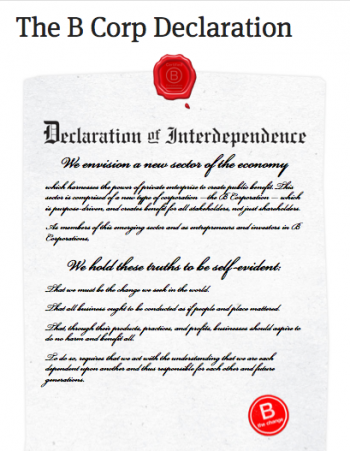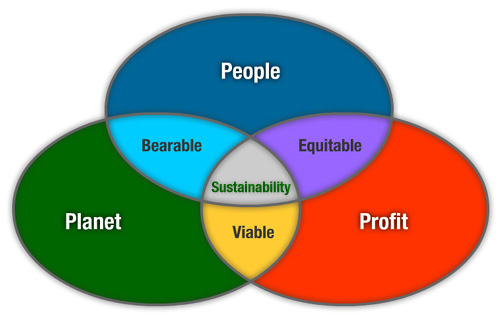September 21, 2015 – One of the most interesting 21st century phenomenon is the rise of an entirely new type of business built on the infrastructure of the Internet and designed not just to make money but to provide a public benefit as well. In the past public benefit was something delivered by government. Think libraries and hospitals. But today we are seeing corporations declaring themselves as public benefit businesses marrying people, the planet, sustainability and a little bit of profit on the side.
In the United States some 20 states and the District of Columbia have recently enacted legislation to allow businesses to register as benefit corporations or B Corps. B Corps are companies with a declared mission focused on social responsibility. They are companies whose values run counter to maximizing profit to meet shareholder expectations.
The latest B Corp is Kickstarter, the online crowdfunding website that provides a venue for entrepreneurs to pitch their latest inventions and ideas to raise money. Why has Kickstarter reincorporated as a B Corp? So that it doesn’t corrupt its mission to enable creative projects to get funding.
Yancey Strickler and Perry Chen are co-founders of Kickstarter. Strickler when asked about reincorporation stated, “we don’t ever want to sell or go public….that would push the company to make choices that we don’t think are in the best interest of the company.”
Public benefit corporations treat profit as not the exclusive goal of their operations. To become a B Corp under American legislation the company’s annual reporting doesn’t just include financial numbers. It must report to shareholders how it is meeting its environmental and social responsibility goals.
Kickstarter’s new charter includes donating 5% of after-tax profits to causes that support the arts and combat inequality. The company has also pledged not to implement tax management strategies designed to circumvent the tax code. And although the company is still beholding to its shareholders, the company’s new direction is sitting well with some of its original investors including venture capital firms.
Kickstarter remains profitable netting between $5 and $10 million over the last three years. All profits have been reinvested in the business. And now as a B Corp the company can attract the kind of people who value the ideals established in the new corporate charter. In announcing the change in status, the founders describe the mission “to create a universe where ideas were funded not because some executive thought they seemed like a good way to make money, but because people wanted them to exist. A belief in the immeasurable importance of art and creativity is c0re to who we are….our mission is to help bring creative projects to life…we exist so that other people’s ideas can exist.”
So far about 500 companies have become registered B Corps. The arrival of this movement may prove to be disruptive to an entire century of corporate law. It also reflects the rising influence of social cause through social media and a changing attitude in business largely driven by a younger generation.











